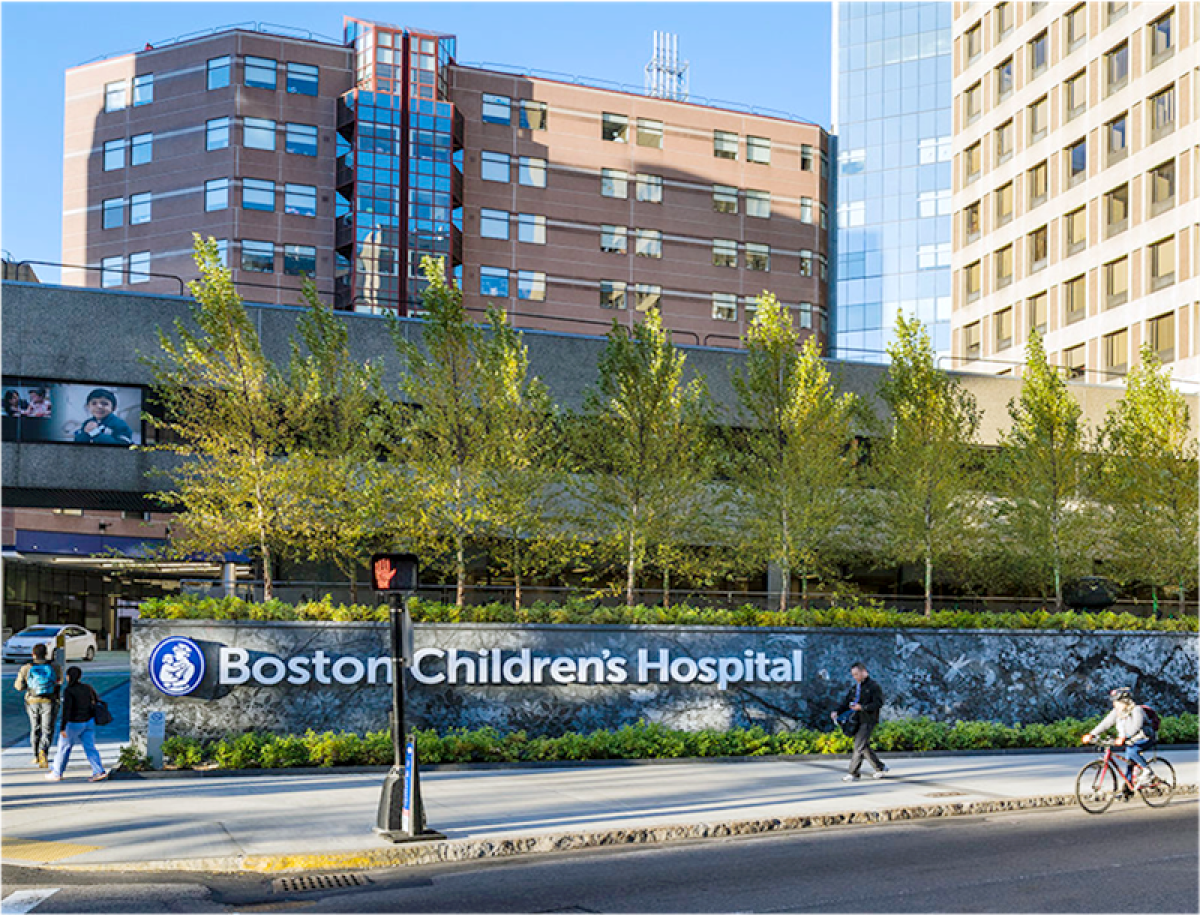Parents worldwide are confronted with a similar question: What is the impact of screen time in the lives of their children?
As children spend more hours in front of screens, it becomes increasingly important to investigate the effects of digital technology on their brains, bodies, and behaviors.
The Center on Media and Child Health has evolved into the Digital Wellness Lab! Be sure to follow us for scientifically proven guidance on how to make the most of technology and media to raise healthier, smarter, kinder kids. #digitalwellness pic.twitter.com/3xreb4yACB
— DigitalWellnessLab (@DigitalWellLab) March 18, 2021
To assist that effort, experts at Boston Children’s Hospital recently launched the Digital Wellness Lab, a research center providing practical, science-based recommendations for parents and caretakers on how to raise healthy children in the digital age.
Amazon Kids, one of the supporters of the initiative, provides free tools for parents to make choices about how their children interact with devices such as Amazon Fire tablets, Kindle e-readers, Echo smart speakers, and Fire TV.
The team says it hopes to utilize Digital Wellness Lab research as it continues to develop new products that help children explore quality content online while informing and empowering parents.
Officially launched in March, the Digital Wellness Lab is an evolution of the Center on Media and Child Health at Boston Children's Hospital, which had been investigating the impact of media use on children’s mental and physical health for almost 20 years.

For the past couple of decades, the amount and the quality of research in this field has increased significantly, but its results remained mostly restricted to academia.
“It struck me that, no matter how wonderful our research was, until we got it into the hands of the people who could actually change the digital environment, we were going to be spinning our wheels,” said pediatrician Michael Rich, the lab’s founder and director.
He notes that while the tech industry is highly competitive, this is a topic where companies are collaborating to address the common concern over impact of technology on children. The Digital Wellness Lab originated from the idea that, by working together with industry, science could foster real change in devices, platforms, and software in ways to promote the wellness of individuals and society.
Amazon Kids’ support for science
Karen Ressmeyer, Amazon Kids director of Family Trust, describes the alliance with the Digital Wellness Lab as a win-win situation.
“This collaboration provides us with new insights and data from the lab to help our mission of contributing to a positive digital environment,” she said.
The goal of Amazon Kids and Amazon Kids+ — a subscription service providing access to thousands of books, movies, TV shows, and educational curated content — is to give children the freedom to explore high-quality content in a kid-friendly environment within parameters set by their parents or caretakers.

Working with the Digital Wellness Lab furthers that goal in a unique fashion, according to Catherine Teitelbaum, principal, Family Trust at Amazon Kids. “With this partnership we are intentionally creating a forum to discuss ideas of all sizes and learn from researchers, academics, and clinicians as we look to constantly strengthen our commitment to the wellness of kids and families,” she said.
While tech companies like Amazon can conduct research on their own to address concerns about the impact of technology on children’s mental health, this arrangement offers the ability to develop fundamental research that is completely independent and agnostic to outcomes, noted Rich.
“Our goal is to offer a resource that can inform both sides of the paradigm — the producers and the consumers — to move what they create and what they consume toward a better place in terms of physical, mental and social health,” he said.
Investigating how technology affects children
At the moment, one of the main research questions related to wellness and technology is how the COVID-19 pandemic has changed the use of technology by children.
Interested in learning about the impact of the COVID-19 pandemic on media use within families? Access insights from our recent pulse survey report: https://t.co/Wa7KZssTlz #FamilyFriday #digitalwellness pic.twitter.com/xIIjEoe0ne
— DigitalWellnessLab (@DigitalWellLab) May 7, 2021
One of the first efforts by the Digital Wellness Lab was a national survey with parents of children from kindergarten to grade 12 that showed as kids’ media use increased during the pandemic, so did the frequency of arguments with their parents over that usage. However, the survey found that spike did not owe purely to kids streaming videos.
“We also found that over 70% of children were using these devices to connect with their family and their friends, and this was true across all age groups,” said David Bickham, research scientist lead at the Digital Wellness Lab. When asked if media use was helpful or hurtful for their children, more than half of the parents said it was helpful for their social relationships and educational achievements.
That more nuanced understanding is a departure from the historically high degree of polarization around this topic, Rich observed. “You were either for kids or for screens, but you couldn't be for both,” he said. Having had an earlier career as a screenwriter and filmmaker – which included working as assistant director to Akira Kurosawa in Japan – he knew that people who were making media were not out to hurt kids.
Bickham noted that, rather than trying to label whether media use is fundamentally good or bad, the lab is trying to identify these types of nuances.
Open research questions
Historically, this field of research hasn’t determined clear causal relationships between types of screen use and mental and physical health outcomes, which constitutes an important gap, according to Rich.
What we want to do is start to move from correlations to understanding what type of screen use contributes to which outcomes.
“For example, we don't know whether playing violent video games makes kids more violent, or whether more violent kids are drawn to violent video games,” he explained. “We just see correlations, and what we want to do is start to move from correlations to understanding what type of screen use contributes to which outcomes.”
The way to get there, notes Rich, is through long-term longitudinal studies, a type of research that follows the subjects for several years and collects data on different variables periodically. The Digital Wellness Lab has a project to do exactly that. The Growing Up Digital project is a 10-year longitudinal study that plans to have at least one site in each of the six populated continents.
“We are going to follow two cohorts of children, from preschool to middle school, and from middle school to young adulthood, on an annual basis measuring in a deep way not just the screens they are actively using, but also those they are ambiently exposed to,” Rich noted.
The study will measure several outcomes related to learning, mental health, and physical health, such as sleep, exercise and nutrition.
The program is already underway in Australia and Canada, and the group is having conversations with institutions from countries like India and Brazil to set up the study in those geographies as well.

The lab also hopes to look at how the use of technology differs across cultures. Previous work by the group looked into digital media usage and play in young children from the United States and Mexico. While, in the U.S., “media use may have displaced time dedicated to certain types of play,” the opposite was true in Mexico: “play seemed to facilitate or positively co-occur with media use.”
“When you think about not just the amount of time spent with screens, but the characteristics of technology use and cultural differences, you start to reveal a more nuanced understanding of how technology impacts kids and their development,” Bickham said.
According to Rich, researchers in this field are coming to realize that it's not about the total duration of screen use, but what we are doing on the screens and the context in which we are doing it. In order to empower families to evaluate what type of technology use is healthy for their children, the lab recently published the Family Digital Wellness Guide, which gives science-based practical advice on the topic for parents and caretakers.
Empowering families is also one of the main goals of Amazon Kids.
“That is so closely tied with our focus at Amazon Kids,” said Teitelbaum, “where we have a long history of building not just products that are safe for kids and designed for kids, but engaging with parents through our parent dashboard, providing them choices to shape their children’s use of media.”


















